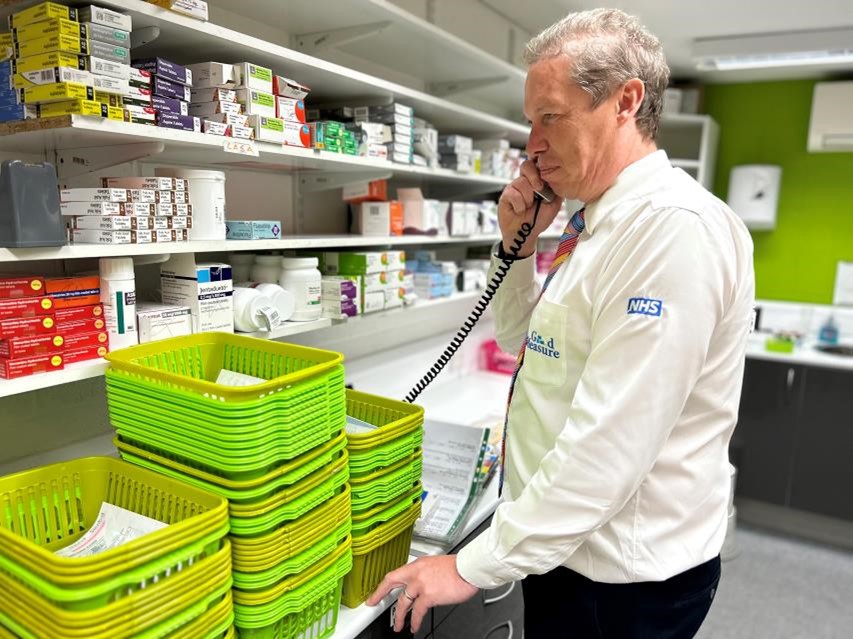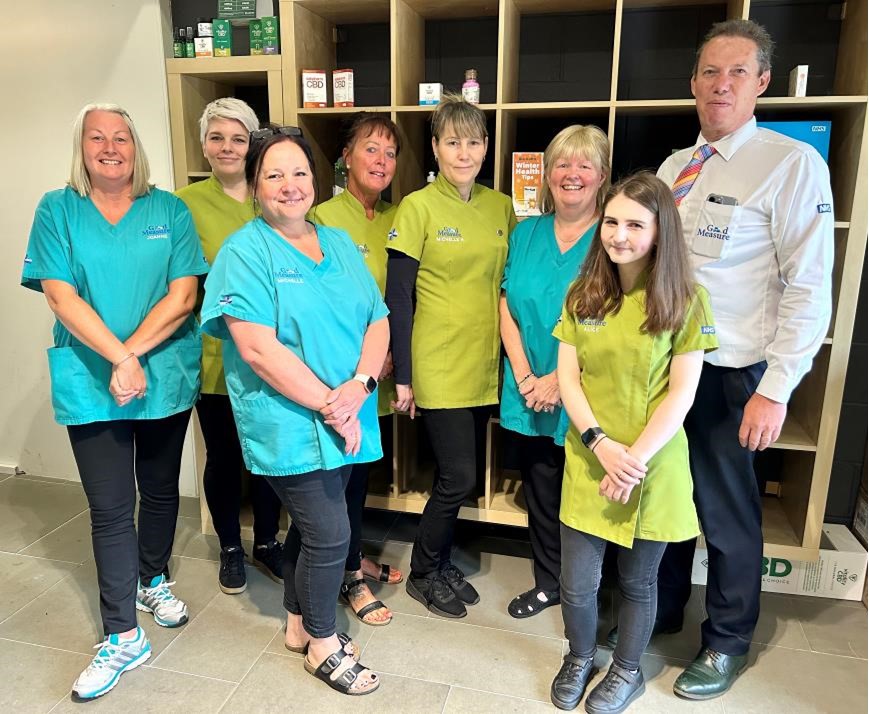With Good Measure Pharmacy, Rotherham
Since the formation of the National Health Service in 1948, community pharmacies have been an integral part of primary care.
Over the last 75 years, our roles as pharmacists have continued to evolve as we make a wider contribution to public health.
Free prescriptions under the NHS created a fairer society, meaning access to healthcare was no longer limited by income. This drastically increased dispensing volumes within community pharmacies.
In those early days, pharmacies looked a lot different from what they do today. The shelves were filled with an array of colourful bottles and the pharmacist would use their ‘recipe book’ of medicines to compound individual pills and potions in the back of the shop.
A lot of the medications were extracted from herbs and plants and apothecary scales were used to weigh the raw ingredients for the mixtures. Pharmacists would make up big bottles of medicines that were dispensed to patients in pint bottles, but no information was given and nobody ever questioned what the medication was.
My parents, Hilary and Terry, were both pharmacists and my earliest childhood memories are of watching Dad make his concoctions with a pestle and mortar or Mum mixing up ointments on a slab at our family’s Wickersley pharmacy.
There were very few drugs available from manufacturers, but things slowly modernised and tablets could be bought in big jars and counted electronically on the tablet counter. Now we buy medication from wholesalers that has been made in factories, hygienically packed with batch numbers and expiry dates.

Being surrounded by the sights and smells of the pharmacy as a child, it was all I ever wanted to do. At 21, I went off to Aston University in Birmingham to start a three-year pharmacy degree. This was in the late 1980s when clinical pharmacy was still in its infancy; some places still had typewriters for prescriptions and we had to know what warning labels went with which medications.
My route into the industry was different to that of my parents a quarter of a century earlier. My mum did a one-year apprenticeship at 18 where she made up big bottles of medicine from raw ingredients and wrote prescriptions in shorthand Latin. She then went to college for three years to learn practical dispensing.
In 1967 it became compulsory for all new pharmacists to obtain a pharmacy degree, followed by a year’s practical pre-registration experience. From 2026, all newly qualified pharmacists will become prescribers on graduating.
When my parents opened their first shop on the Tanyard in 1968, there were no big chains, just individual shops in towns and villages. After about 14 years, they moved to the newly opened health centre on Poplar Glade which I took over in 1996.
Two years later we opened a second premises across the roundabout, what many will remember as The Apothecary on Morthen Road. Here, we focused on alternative remedies, vitamins and minerals and homoeopathy, a field my mum specialised in, and once even advised the Sultan of Brunei about a remedy for his racehorses.
I sold the business and bought two pharmacies in Sheffield. After selling these in 2008, I had some time off before opening Good Measure in 2012. We started with one member of staff and ten years later we have a team of ten who dispense and deliver medications throughout the town to people in their homes.

Technology and the digital revolution have vastly helped improve our service. The Electronic Prescription Service was launched in 2005, meaning we no longer rely on those little green slips of paper that would have needed collecting and processing. A prescription comes through from GPs via our IT system and medicine labels are printed automatically. With no need to transcribe prescription information, our dispensing team has more time to spend with patients they are delivering to, answering any queries or giving advice where necessary.
Over the last 20 years, the role of a pharmacist has changed significantly. Community pharmacy is increasingly integrated with the wider NHS and we have become the most publicly accessible healthcare professionals. Many pharmacies now offer a wide range of healthcare services, from vaccinations to health checks and help with healthy living.
As well as offering advice and treatment for minor ailments such as earaches and skin rashes, a pharmacist will refer you for a GP or hospital appointment if something needs checking out further.
Just recently, it was announced that the government is planning to launch a new ‘pharmacy first’ scheme where pharmacies can prescribe certain medications for common conditions without patients needing to see a GP first. This will include conditions including earache, sore throat or urinary tract infections. providing blood-pressure checks and prescribing oral contraception for women.






